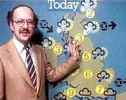 What’s a Christmas icon to do, when all the ice at the North Pole disappears in summer? This startling question is posed by the latest flush of media attention to events in the Arctic. First there was a National Geographic story on June 20th speculating that the North Pole would be ice free this summer (note: this is nothing to do with record minima, just do with ice around the pole itself). This was picked up by CNN, who went to Mark Serreze of the NSIDC in Boulder, Colorado for comment:
What’s a Christmas icon to do, when all the ice at the North Pole disappears in summer? This startling question is posed by the latest flush of media attention to events in the Arctic. First there was a National Geographic story on June 20th speculating that the North Pole would be ice free this summer (note: this is nothing to do with record minima, just do with ice around the pole itself). This was picked up by CNN, who went to Mark Serreze of the NSIDC in Boulder, Colorado for comment:
“We kind of have an informal betting pool going around in our center and that betting pool is ‘does the North Pole melt out this summer?’ and it may well,” said the center’s senior research scientist, Mark Serreze. It’s a 50-50 bet that the thin Arctic sea ice, which was frozen in autumn, will completely melt away at the geographic North Pole, Serreze said.
And then everything went quiet, until The Independent in Britain (referred to as The Indescribablyoverhyped on climate matters by Stoat) picked up the story and ran with it under the headline – Exclusive: no ice at the North Pole:
It seems unthinkable, but for the first time in human history, ice is on course to disappear entirely from the North Pole this year.
They seem to be having problems with their choice of tense, and quite how they can justify the “exclusive” tag escapes me… The Drudge Report noticed, and then everyone in the world had to have a go [Telegraph, AP(*)]. Andy Revkin at DotEarth covers it well, and RealClimate chips in with its own analysis. It won’t be long before the usual denialist sites will be spluttering with indignation, despite the fact that the North Pole has a very good chance of being open ocean this summer – even if a new record minimum is not set.
None of this has any relevance to the odds of my winning my various sea-ice bets, but it does give me a chance to post a few interesting Arctic-related links from the last week… As part of its beat-up, The Independent went to Peter Wadhams, professor of ocean physics at Cambridge University, for his impressions on the changes in the Arctic, and the BBC’s been carrying a blog from Liz Kalaugher aboard a Canadian icebreaker that over-wintered near Banks Island. Interesting stuff – note Liz’s comments about the weather. Meanwhile, across the melting ice, the Russian defence establishment is beginning to get worried about the impact of melting permafrost.
(*) The AP story uncovers this truly remarkable and hitherto unnoticed fact: “That pushed the older thicker sea ice that had been over the North Pole south toward Greenland and eventually out of the Arctic, Serreze said. That left just a thin one-year layer of ice that previously covered part of Siberia.” So that ice has somehow left the land and started floating towards the Pole. Be afraid, be very afraid…





